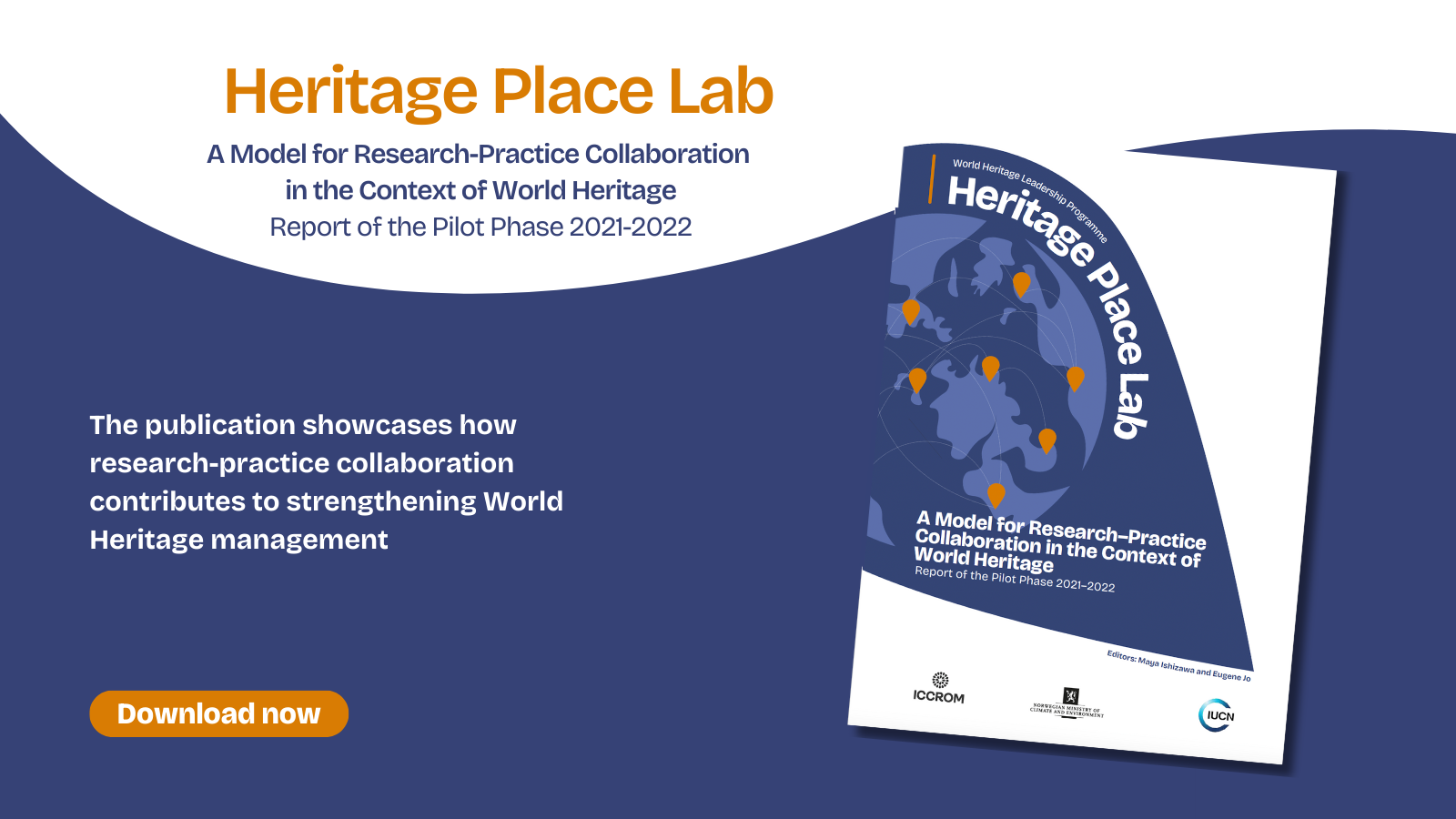The new publication “Heritage Place Lab. A Model for Research-Practice Collaboration in the Context of World Heritage. Report of the Pilot Phase 2021-2022” presents the testing of a methodology for collaborative work between academics and site managers and showcases the resulting research agendas prepared by research-practice teams from Argentina, Ghana, Guatemala, India, Norway and Zimbabwe.
In May 2021, the ICCROM-IUCN World Heritage Leadership (WHL) programme launched the Heritage Place Lab (HPL), a capacity-building activity focused on strengthening networks across research and site management in the context of the implementation of the World Heritage Convention.
In order to develop practice-led research agendas for World Heritage properties, the WHL invited researchers and site managers to team up in Research-Practice Teams and take part in the HPL pilot phase, consisting of a series of six incubator online workshops held between September 2021 and April 2022. After closing the string of online workshops, WHL continued to work together with research-practice teams to produce tangible outcomes:
- PANORAMA Nature-Culture solutions
- A Special Issue of the Journal of Cultural Heritage Management and Sustainable Development from Emerald
- This new publication collecting the results of the pilot phase.
The publication Heritage Place Lab. A Model for Research-Practice Collaboration in the Context of World Heritage. Report of the Pilot Phase 2021-2022 presents the process and results of the HPL pilot phase divided into two parts.
In the first part, the editors present the process proposed during the HPL, describing the conceptual framework and methods used during the incubator online workshops. The research–practice model tested during this pilot phase is detailed alongside the lessons learned during the experiment. A model that could be replicated at other World Heritage properties and heritage places is then proposed.
In the second part, the results of the HPL experimental process are discussed. Seven practice-led research agendas are presented that showcase the collaborative work developed by the Research–Practice Teams involved in the process:
- Recovering Traditional Management, Asante Traditional Buildings, Ghana
- Integrating Universal and Local Values: Towards a people-centred research agenda, Great Zimbabwe, Zimbabwe
- Restoring Nature-Culture Balance in the Wider Setting, Jaipur City, Rajasthan, India
- Cultural Values of African Wetlands, Okavango Delta, Botswana
- Impacts of Tourism and Landscape Change, Quebrada de Humahuaca, Argentina
- Understanding Social and Environmental Change, Rjukan-Notodden Industrial Heritage site, Norway
- Building Consensus for a Buffer Zone, Antigua Guatemala, Guatemala
The outcomes of the application of the model and methodology in the different regions and national contexts resulted in a diversity of proposals for research priorities at each of the World Heritage properties.
ICCROM Director-General welcomed the publication of the results of the pilot phase of HPL commenting: “I particularly praise the commitment and efforts made to ensure a scientifically robust and sound research project, of which the results could be framed to directly benefit a heritage site management reality and connect between silos of research and day-to-day management. I am confident that this experience of the Heritage Place Lab has provided a possible methodology for bridging these gaps.”
Access the full publication at this link
Way forward – second edition of Heritage Place Lab
WHL is currently developing a second phase of HPL that will begin in September 2024 and will continue until spring 2025. In this second phase, site management teams and researchers apply to separate calls for applications, and they will be paired through the programme to elaborate on existing challenges and formulate research agendas tailored for the site.

